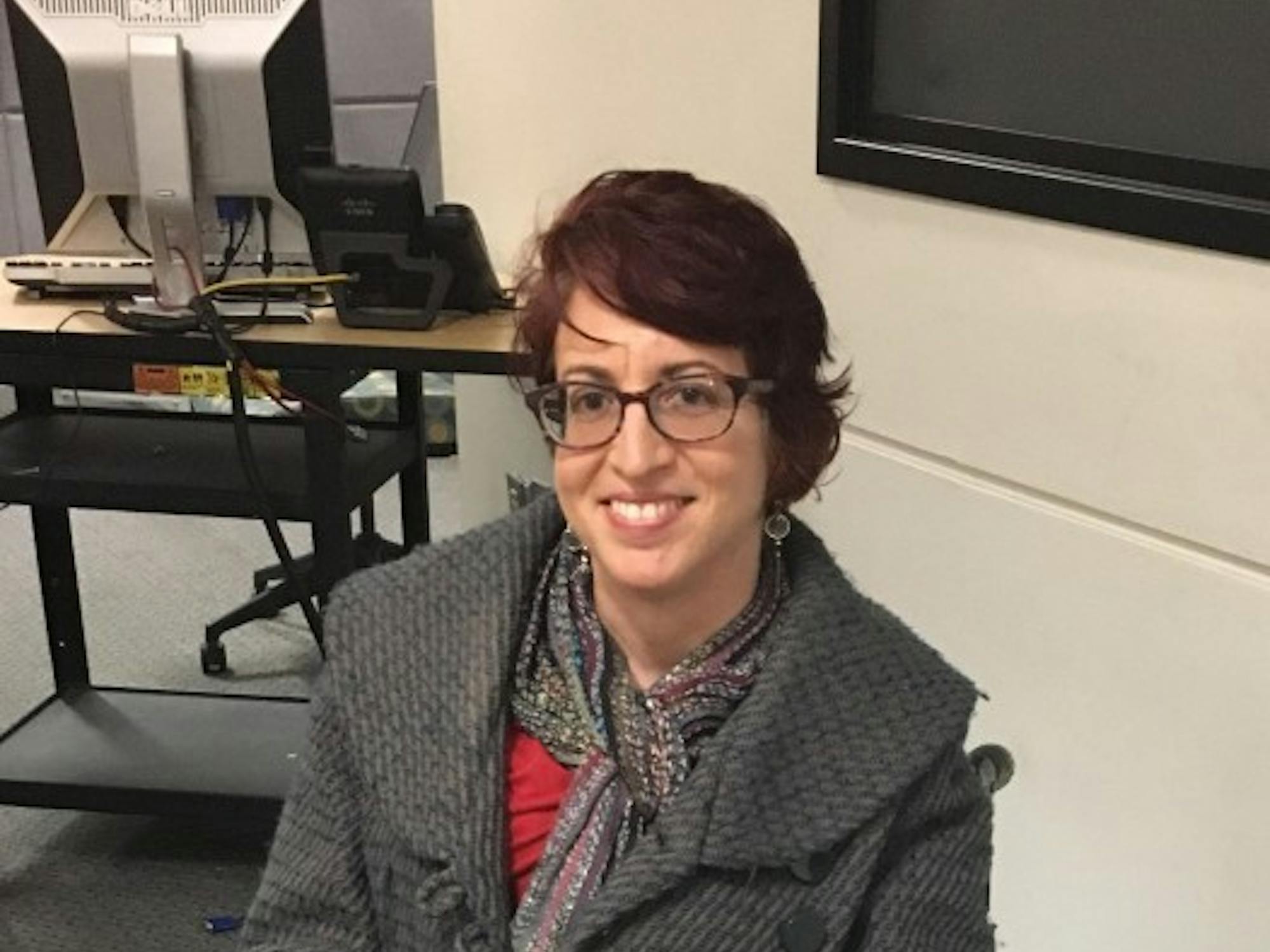Liat Ben-Moshe, Ph.D., assistant professor of disability studies at the University of Toledo presented her lecture “Epistemologies of Abolition” as part of the Philosophy Speaker Series on Thursday, March 23 at Halle Library.
Moshe’s lecture focused on the institutionalization of disabled people, which is the movement of people outside of large residential institutions for people with intellectual disabilities and psychiatric hospitals and looking at these as forms of incarceration.
Moshe also lectured on how to respond to critiques of abolitionary movements and looking at the epistemological assumptions in those critiques. She focused on penal abolition, which tries to replace prison systems with more effective systems.
She referenced Viviane Saleh-Hanna, Ph.D., associate professor of criminology at the University of Massachusetts. Hanna describes penal abolition as not only a social movement to eliminate the penal system but a theoretical framework which re-conceptualizes crime, offenders, community and justice and a political strategy leading to safer communities that will no longer be based on punitive principles.
Moshe said that abolition is a political framework and agenda for action and an epistemology or study of knowledge and an ethical position. These movements strive to create non-carceral and non-segregationist societies. Carceral locales are a variety of enclosures such as psychiatric hospitals, detention centers and institutions for people with disabilities.
She touched on the various critiques of abolition. It does not focus on prescriptive or policy recommendations, it does not give solutions, but it does give a utopian vision of the world, and is unrealistic to espouse this worldview in the world we currently occupy.
She said that these critiques can be conceptualized as strengths and provide a unique strategy of epistemology and ethics to resistance to incarceration. She said that abolition as a radical epistemology can be constructed in two ways: As a counter hegemonic epistemology and as producing specific forms of knowledge. One can view abolition as an epistemology that is counter-hegemonic. Hegemonic discourse is the need to segregate others in the name of safety and punishment.
Abolition is counter-hegemonic in the vision it encourages. She said that epistemology is not just from erudite knowledge but subjective knowledge or knowledge that has been viewed as non-scientific. Abolitionist knowledge reconceptualizes what gets to be defined as a crime, who gets to be defined as criminal, and what is disability and rehabilitation. It also questions ideas of punishment.
She said that abolition is an attachment to the idea of knowing and needing to know that is part of knowledge and all economies. It is letting go of the definitive consequences of doing or not doing.
Moshe said that the goal of abolition is the process of trial and error. Abolition takes place when one breaks with the established order.
It is a goal and a mindset used to come up with new alternatives. Abolition efforts should take place when people are still enslaved. Don’t wait until the time is right. Prisoners can’t wait for a totalitarian government to be free from bondage. It is revolutionary. We need to imagine alternatives of a totalitarian government with a sense of urgency.
This sense of urgency enables abolitionism, as utopian epistemology, to become a model for political activity with a vision for the future. If prison systems were closed now, it would be better than the system that is already in place. The expectation of happiness is what gives the future promise. Constructing an optimistic future for those who are perceived to not have one can be reparative. It can give prisoners a reason to do better because the future will be better.
Moshe said that abolition is ethical, not just a tactic or a strategy. It is about creating a society free of a system of inequity, which produces violence, desperation and suffering. It goes to the root cause of issues.
Vanessa Thorburn, junior majoring in philosophy, said that she was very impressed with how Moshe gave new insight to epistemology.
“I’m new to the idea of epistemology. It was interesting to see it applied to sociohistorical institutions. I have been studying mass incarceration for a year, and I like how she presented it. Epistemology is a new way of approaching abolition epistemically,” she said. “I liked how she distinguished white washing abolition which defeats the purpose of abolition. This has been a present-day issue with liberation in terms of social justice.”
Dean Adams, professor of gender studies at the University of Toledo, said that the lecture addresses big issues in our society that need to be addressed.
“It’s important to look at how systems of oppression connect to our carceral system and how those systems continue to place people of color and people with disabilities in prison to enhance and continue capitalism,” he said. “And these people are seen as disposable populations because they usually can’t work or don’t have jobs. If people of color are imprisoned it helps to create jobs for whites because they become prison guards.”










